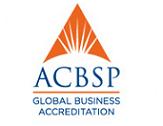This action of the madri+d Foundation for Knowledge aims to provide Madrid's universities with the opportunity to submit to accreditations of excellence and international recognition through foreign accrediting agents.
Madrid's universities will be able to obtain international accreditations of excellence beyond the minimums currently offered in the national framework, with the Foundation acting as an intermediary between them and seeking their active participation in these evaluation processes, either in the area of adapting accreditation criteria or in active participation in evaluation processes.
NAAB
The National Architectural Accrediting Board is the only body authorized to accredit U.S. architecture degree programs. Most states  require that any applicant for a license must have graduated from an NAAB-accredited program.
require that any applicant for a license must have graduated from an NAAB-accredited program.
The Foundation has signed a collaboration agreement with NAAB and within the framework of this agreement, promotes and advises Madrid's universities on the NAAB accreditation procedure, and also participates as an external observer in the different phases of the process.
Currently 2 universities in Madrid have obtained NAAB accreditation:
ABET
The Accreditation Board for Engineering and Technology (ABET), is an American quality agency, leader in quality assurance in the areas of Applied Sciences, Computer Science, Engineering and Education Technologies. ABET accredits over 3,300 programs at more than 680 universities in 24 countries.
The Foundation has signed a collaboration agreement with ABET and, within the framework of this agreement, participates as an observer in the external evaluation committees. The following universities in the Community of Madrid have obtained accreditation for their programs from this agency:
ACBSP
The Association of Collegiate Business Schools and Programs (ACBSP) is a sectoral accrediting body based in the United States of America, ACBSP, created in 1988 to respond to the need  to carry out specialized accreditation in the field of business administration and management with a spectrum aimed at universities and business schools seeking a type of accreditation based on the institution's mission and that specifically recognized the quality of teaching and learning outcomes.
to carry out specialized accreditation in the field of business administration and management with a spectrum aimed at universities and business schools seeking a type of accreditation based on the institution's mission and that specifically recognized the quality of teaching and learning outcomes.
The Foundation has signed a framework agreement of collaboration for the exchange of experiences in the field of quality in the degrees of administration and business management.
ABA
The American Bar Association is an independent association of lawyers and law students founded in 1878 with the following objectives:
The Foundation's collaboration is part of the second objective, having established a collaboration agreement that allows the exchange of experience related to the systems of accreditation of programs and centers developed by both institutions.

- Serve its members by offering programs and services that promote their professional development and improve their quality of life.
- Improve the practice of the profession by promoting a quality law education, encouraging the practice of competent, ethical and professional standards and providing free legal services to society and to persons practicing the profession.
- Eliminate prejudices and respect diversity, promoting the full and equal participation of all people in the areas of the association, the profession and the judicial system.
- Promote law enforcement by increasing awareness, respect for the law, judicial processes and the role played by legal professionals, both nationally and globally, holding governments accountable for compliance with the law, working towards the development of fair laws, including respect for human rights and the right to a fair trial, ensuring access to justice for all citizens and preserving the independence of professionals and the judiciary.

